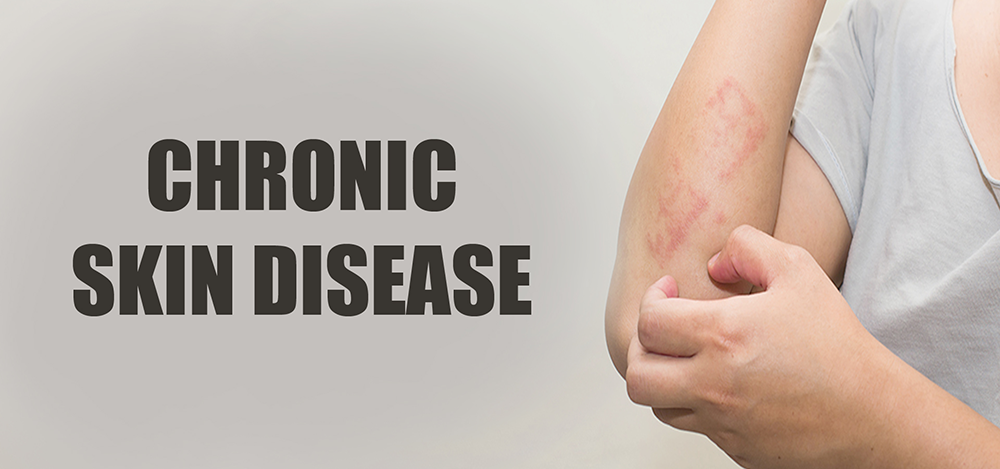Title: Understanding Skin Diseases: Signs, Symptoms, Causes, Risk Factors, Diagnosis, Prevention, Diet, Lifestyle, and Homoeopathic Medicine
Introduction:
Skin diseases can range from common conditions like acne and eczema to more severe disorders such as psoriasis and dermatitis. These conditions can cause discomfort, affect self-esteem, and impact overall well-being. Understanding the signs, symptoms, causes, risk factors, diagnosis methods, prevention strategies, diet and lifestyle considerations, and the potential role of homoeopathic medicine is crucial for effectively managing skin diseases. In this blog post, we will explore the key aspects of skin diseases and their holistic approach to treatment.
Signs and Symptoms of Skin Diseases:
1. Rash or redness: Areas of the skin may develop a rash, appear red, or become inflamed.
2. Itching or irritation: Skin diseases often cause intense itching or irritation, leading to scratching and further aggravation.
3. Dry or flaky skin: Skin may become excessively dry, resulting in flaking or peeling.
4. Blisters or sores: Some skin diseases present with blisters, open sores, or lesions.
5. Swelling or edema: Inflammation of the skin can cause swelling or edema in affected areas.
Common Causes of Skin Diseases:
1. Genetic factors: Some skin diseases have a hereditary component, meaning they can be passed down through generations.
2. Allergies: Allergic reactions to substances such as certain foods, medications, or environmental factors can trigger skin diseases.
3. Immune system disorders: Conditions that affect the immune system can contribute to the development of skin diseases.
4. Environmental factors: Exposure to irritants, pollutants, or extreme weather conditions can affect the skin.
5. Infections: Bacterial, viral, or fungal infections can lead to various skin diseases.
Risk Factors for Skin Diseases:
1. Family history: Having a family history of certain skin diseases increases the risk of developing them.
2. Age and gender: Some skin diseases are more common in specific age groups or genders.
3. Occupation or exposure: Certain occupations or exposures to chemicals or irritants can increase the risk of developing skin diseases.
4. Weakened immune system: Individuals with weakened immune systems are more susceptible to skin diseases.
5. Personal history: Individuals who have had previous skin diseases may be at a higher risk for future skin conditions.
Diagnosis of Skin Diseases:
Diagnosing skin diseases often involves a combination of the following methods:
1. Physical examination: A dermatologist will visually inspect the affected areas, noting any specific characteristics or patterns.
2. Medical history: The doctor will ask about the individual's medical history, previous skin conditions, and family history of skin diseases.
3. Skin biopsy: A small sample of skin tissue may be taken for laboratory analysis to confirm the diagnosis.
4. Allergy testing: Allergy tests can help identify specific triggers or substances causing allergic reactions.
Prevention, Diet, and Lifestyle Considerations:
1. Skin hygiene: Practice good skin hygiene by regularly washing with gentle cleansers and avoiding harsh soaps or excessive scrubbing.
2. Moisturize: Keep the skin well-hydrated by using suitable moisturizers.
3. Sun protection: Protect the skin from harmful UV rays by applying sunscreen, wearing protective clothing, and seeking shade.
4. Allergen avoidance: Identify and avoid triggers or substances that cause allergic reactions.
5. Stress management: Stress can exacerbate skin conditions, so practice stress management techniques like exercise, meditation, or engaging in relaxing activities.
6. Healthy diet: Maintain a balanced diet rich in fruits, vegetables, whole grains, lean proteins, and healthy fats, as nutrition plays a vital role in skin health.
Homoeopathic Medicine for Skin Diseases
:
Homoeopathy offers a holistic approach to treating skin diseases, focusing on the individual's symptoms, overall health, and underlying causes. Some commonly used homoeopathic remedies for skin diseases include:
1. Sulphur: Indicated for various skin conditions, including itching, burning, and dryness.
2. Graphites: Useful for eczema with oozing, cracking, and thickening of the skin.
3. Arsenicum album: Recommended for allergic skin reactions with burning, itching, and restlessness.
It is important to consult a qualified homoeopathic practitioner for an accurate diagnosis and individualized treatment plan based on your specific symptoms and overall health.
Conclusion:
Skin diseases can have a significant impact on an individual's well-being. By understanding the signs, symptoms, causes, risk factors, diagnosis methods, prevention strategies, diet and lifestyle considerations, and considering homoeopathic medicine as a complementary approach, individuals can effectively manage skin diseases and promote healthy skin. Remember to consult healthcare professionals for an accurate diagnosis and to create a comprehensive treatment plan tailored to your specific needs.

Leave a Message